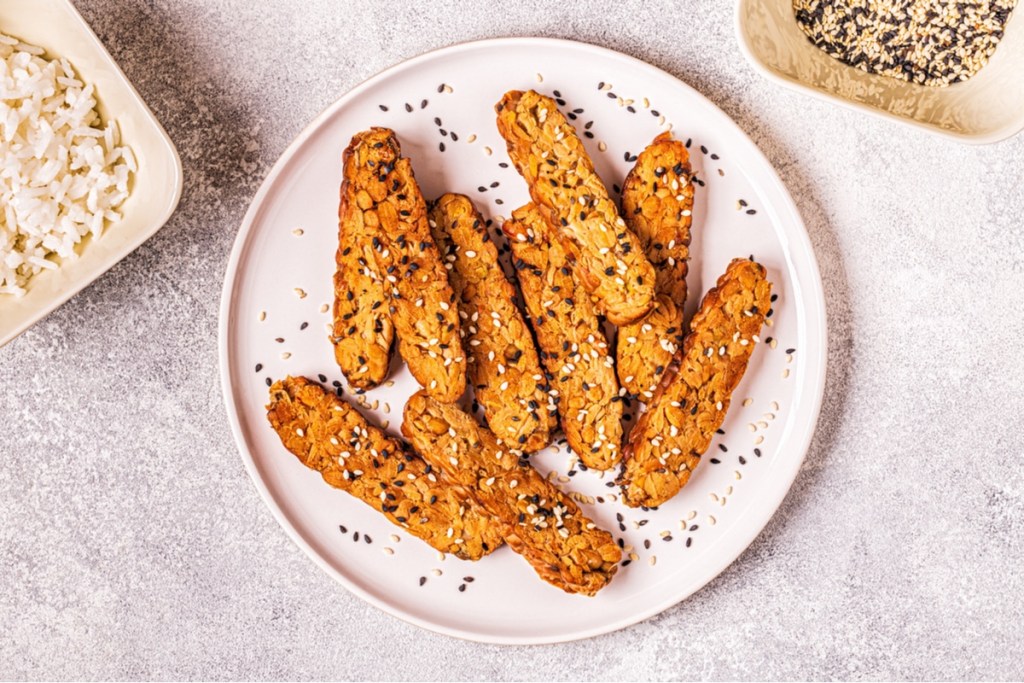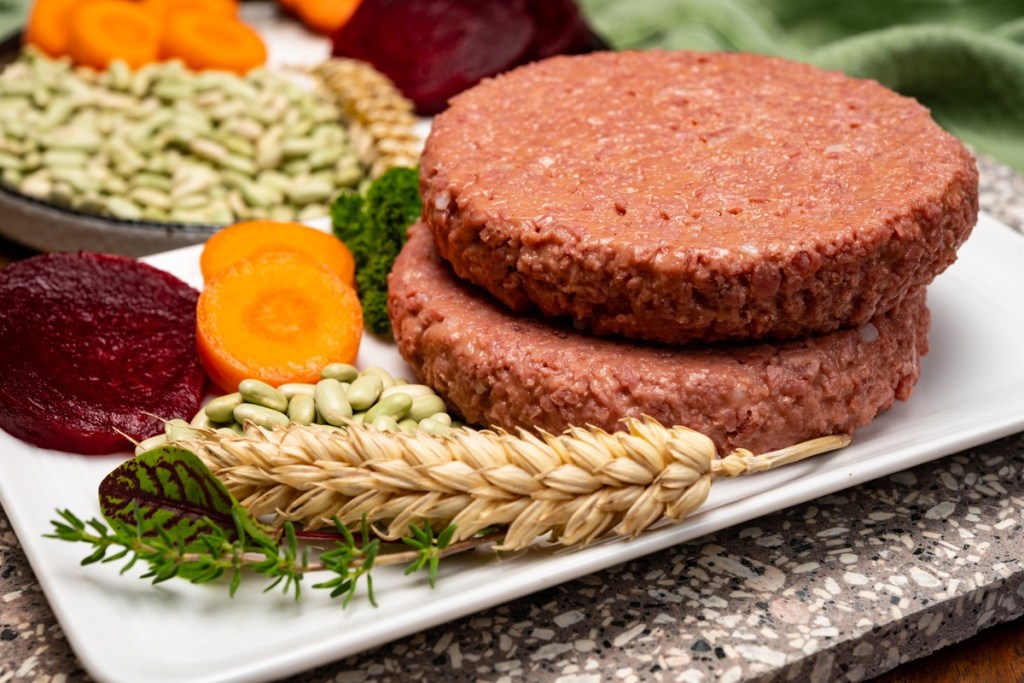When you think of muscle-building protein, you likely consider meat proteins like steak and grilled chicken. While this animal protein contains more amino acids and other nutrients like vitamin B12, processed meat may increase the risk of heart disease and diabetes. Luckily, there are many other ways to hit your daily dose without turning to meat. Plant-based options continue to expand by the day, providing plenty of protein for vegans, vegetarians, and anyone else looking for a healthier alternative to red meat or other animal byproducts.
Those who opt for plant protein, however, may need to work a little smarter to get the results they’re looking for. Follow these steps to maximize your muscle-building, and explore these meat-free proteins you can include in your diet.
Follow good habits
Muscles aren’t built from protein consumption alone. Your lifestyle, gym routine, and overall diet all play a part. To give your protein a fighting chance, work strength training into your workout routine alongside your cardiovascular exercises. Don’t overdo it, though, because your muscles need time to rest in order to grow and strengthen. Additionally, be sure to consume your protein, either in a meal or mixed into a shake, before you workout, not after. For best results, though, consume some kind of protein every three hours to keep your body fueled for the activities ahead.
These are just rules of thumb, so don’t hesitate to reach out to a health professional or nutritionist for more information about your specific protein needs and habits. Now, without further ado, let’s get to the best plant protein sources for your pre-workout meal.

Soy, soy, and more soy
Soy is so much more than a dipping sauce for sushi and blocks of tofu. This ingredient is also a source of complete proteins that contain essential amino acids. Many other plant-based protein sources aren’t complete, so soy is one of the best meat alternatives for muscle building. Soy sauce isn’t the only way to incorporate protein-packed ingredients into your diet. Other varieties include:
- Soy milk (8 grams of protein per cup): Just as versatile as dairy milk for cereal, smoothies, or by the glass.
- Edamame (17 grams of protein per cup): These steamed soybeans are a popular snack that tastes delicious with a sprinkle of sea salt.
- Tofu (20 grams per cup): This protein absorbs the flavors of whatever’s cooked alongside it, making it extremely versatile.
- Tempeh (31 grams per cup): Made from fermented soybeans, this plant-based substitute can replace bacon and ground beef, among other things.
Plant-based meat
The newest and most popular plant-based meats are miracles of modern science. These options have the authentic taste, rich texture, and even the telltale reddish-brown appearance of animal meat. The two most popular brands are Impossible Foods (19 grams of protein per four-ounce burger) and Beyond Meat (20 grams per four-ounce burger). For comparison’s sake, a four-ounce beef burger, at 16 grams per serving, contains less protein than both of these options.
Plenty of brands, including Impossible and Beyond, also make sausages, ground beef, and other meat alternatives. Try different kinds to see what you like best.

Get out of the whey
Whey protein is the go-to shake mix of choice for many fitness-conscious consumers. However, pea protein, typically made from dried yellow peas, is hot on whey’s heels as a high-powered plant-based alternative. On average, one serving of whey protein contains about 17 grams of protein, whereas one serving of pea protein, such as that found in the popular Vega brand, contains about 20 grams.
Remember our note on amino acids? Most pea protein shakes also contain essential amino acids that ramp up the muscle-building process even more.
Get nutty
It’s not possible (or healthy) to get all your protein from nuts, but they’re certainly a stellar source that is also full of fiber to keep you feeling fuller longer.
Protein counts on popular nuts include:
- Peanuts (38 grams of protein per cup)
- Cashews (24 grams per cup)
- Walnuts (16 grams per cup)
- Almonds (30 grams per cup)
It’s far easier to be vegan now than it was even five years ago. Now, a high-protein diet doesn’t have to go by the wayside in favor of veganism or vegetarianism, so keep your plant-based muscles in tip-top shape with these protein-packed products.
BlissMark provides information regarding health, wellness, and beauty. The information within this article is not intended to be medical advice. Before starting any diet or exercise routine, consult your physician. If you don’t have a primary care physician, the United States Health & Human Services department has a free online tool that can help you locate a clinic in your area. We are not medical professionals, have not verified or vetted any programs, and in no way intend our content to be anything more than informative and inspiring.




